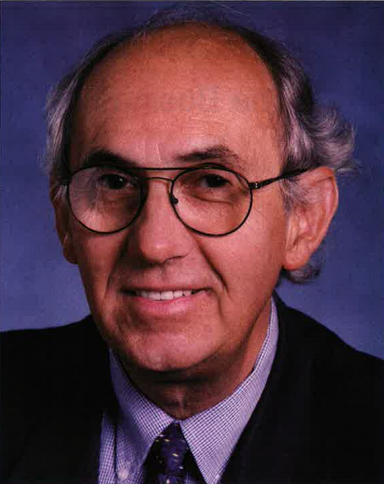Next time you try to illegally copy a Hollywood movie from a videocassette outlet such as Blockbuster you can thank or alternatively curse John Ryan for the fuzzy end product.
It was Ryan’s invention that has prevented the widespread pirating of movie video cassettes produced by the Hollywood studios and in the process he has saved them billions of dollars and made himself a very rich man.
The fact that John Ryan, 54, son of a shopkeeper from Tipperary town in Ireland, came up with a solution to the studios’ problem, and not some clever engineers from MIT who were desperately trying to, is a story in itself. But John Ryan, now founder and chairman of Macrovision, makes it seem so simple.
Explaining his invention during our interview at his spacious Woodside, California home in the heart of Silicon Valley, Ryan says, “I found one subsystem in the VCR that was not in the television set. I exploited that difference and made sure that the reproduction was weak, noisy or unstable.”
Having patented his invention, Ryan and his partner Victor Farrow had to sell it to the studios. The company’s videocassette copy protection technology was first used by a major studio in 1988 when MCA/Universal protected the home video title Back to the Future. Ryan’s invention quickly became the industry standard and is now used in over 2.5 billion videocassettes and on Digital Video Discs (DVDs).
Macrovision is now a billion-dollar company which has also received patents for videocassette protection technology for use in digital pay-per-view media markets. In 1998 Macrovision introduced SAFEDISC, an anti-piracy solution for interactive software distributed on CD-ROM and Internet-delivered software.
All in all, the company holds a total of 75 issued or pending United States patents and 513 issued or pending international patents. In the world of video and software piracy protection, Macrovision is king. Soon after the company went public in 1997 the stock rose from $9 to $76.
Macrovision is also attuned to the explosion in e-commerce and the opportunities to prevent fraud. On September 14 of this year, Macrovision linked up with the on-line retail shop Jungle.Com, which attracted 2 million hits in the first 12 hours of trading. Macrovision’s patented system allowed online purchasers to clear their credit cards through a highly secure system they had invented. The average transaction took between two and 10 seconds.
Ironically, Ryan might never have made it to Silicon Valley were it not for the advertisement he saw in a London newspaper back in 1974 looking for television technicians in California. Up to then he had worked for the state broadcasting company Radio Teilifis Eireann and for Yorkshire television.
The son of a shopkeeper, he showed an early interest in electronics and, ironically, once even started his own pirate radio station. He graduated in electronic engineering from University College Galway.
In 1974, Ryan began working with the Ampex Corporation, then the market leader, and spent six years working on research and development with them. In 1982, a mutual friend introduced him to Victor Farrow, an entrepreneur who saw the evident genius of the young Irishman and asked for the opportunity to create a Silicon Valley start-up with him.
Thus was Macrovision born and in typical Silicon Valley style, it was tough sledding at the out, set. “He told me he’d guarantee my salary,” remembers Ryan. “I’d made a reputation with sixteen patents involving television electronics, but this was a huge step out on my own for me to take.”
Ryan decided to tackle the videocassette piracy problem, which the motion picture industry considered one of the greatest challenges they confronted. Ryan’s technological breakthrough was first used in the film The Cotton Club but it was when Universal stepped in and decided to use his invention with Back to the Future that Macrovision began to really take off.
Ryan knows that the secret to his success is staying ahead of the pirates. At most, he says, the goal is to stay three to six months ahead, by which time the shelf life of most major movies has passed. He knows, however, that it is a constant battle.
Yet it is one he relishes. He still spends half of his time working on new business ideas, despite the responsibility of overseeing a major corporation.
He has not forgotten his Irish roots either. He is a very generous donor to charities in his homeland and has done extensive philanthropic work for the University of Limerick.
A quiet man who rarely seeks the limelight, John Ryan could not be more unlike the moguls of the television and movie industry who like nothing more than the spotlight. Yet they owe him a great deal of respect for what he has accomplished for them. John Ryan, in his own quiet way, is a revolutionary.


Leave a Reply